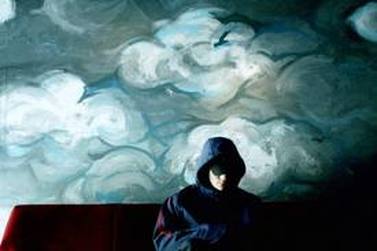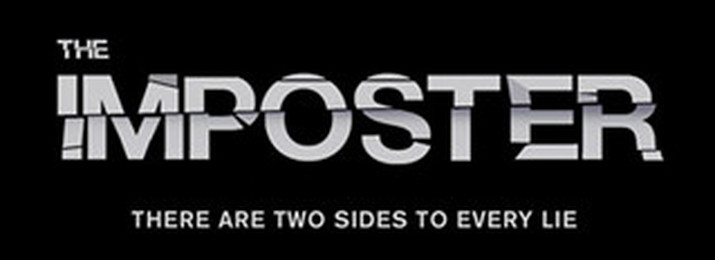
Cast & Crew
A Documentary
Directed by Bart Layton
Running time: 95 minutes
Rated R
(Some language, but mostly lies, damned lies and no statistics whatsoever.)
A Documentary
Directed by Bart Layton
Running time: 95 minutes
Rated R
(Some language, but mostly lies, damned lies and no statistics whatsoever.)
Reviewed by Jeannette Catsoulis - NYT
Like its smirking antihero and chief narrator, the serial con artist Frédéric Bourdin, “The Imposter” is slippery, manipulative, unstable and smoothly confounding. It’s also one of the most entertaining documentaries to appear since “Exit Through the Gift Shop,” a film similarly obsessed with role playing and deception.
Cleverly deflecting our dislike of Mr. Bourdin’s smug narcissism and brazen amorality, the British director Bart Layton presents this bizarre true-crime narrative from multiple viewpoints. The resulting collage of interviews, re-enactments and home-video footage proves the perfect medium for the twisty story of Nicholas Barclay, a Texas teenager who disappeared in 1994.
When, three years and some months later, a carefully camouflaged Mr. Bourdin surfaced in Spain, claiming to be the missing boy and armed with horrific details of torture and abuse, no one should have believed him. How could a 23-year-old, raven-haired French-Algerian pass himself off as a 16-year-old blond, blue-eyed American?
That question bleats insistently throughout this mind-boggling relay of official incompetence, familial self-deception and ingenious duplicity. But Mr. Layton is less concerned with trapping the truth than in laying out its many disguises: invariably cocooned in a selection of hoodies, hats and scarves, Mr. Bourdin (and his stand-in for re-enactments, Adam O’Brian) slinks through the film like a mutating virus. Everyone is contaminated, from Child Protective Services and the United States Embassy in Madrid to the American news media and the F.B.I. And, not least, Nicholas’s traumatized family.
“I washed her brain,” Mr. Bourdin boasts of his initial meeting with Nicholas’s older sister, Carey Gibson, whose face in interviews bears the look of a woman who expected a puppy for Christmas and unwrapped a viper.
The rest of Nicholas’s family appears equally sideswiped, leaving us to wonder how long the ruse would have continued had not an unlikely hero hustled forward in the folksy form of Charlie Parker, a private investigator and inveterate clue sniffer. Round of belly and suspicious of mind, Mr. Parker pounces on the story, wrestles it to the ground and makes off with it to a destination that calls into question almost everything we have just seen.
Unrepentant to the end, Mr. Bourdin presides over this tragedy with repulsive self-regard. But his director, working with the editor Andrew Hulme, refuses to cede control of the film’s tone. Using unexpected flares of humor — when a telephone rings in a police station, it’s answered by a delightful montage of famous small-screen detectives — and defiantly jaunty rhythms, Mr. Layton lightens the mood without making light of the crime. His subject does that all by himself.
Like its smirking antihero and chief narrator, the serial con artist Frédéric Bourdin, “The Imposter” is slippery, manipulative, unstable and smoothly confounding. It’s also one of the most entertaining documentaries to appear since “Exit Through the Gift Shop,” a film similarly obsessed with role playing and deception.
Cleverly deflecting our dislike of Mr. Bourdin’s smug narcissism and brazen amorality, the British director Bart Layton presents this bizarre true-crime narrative from multiple viewpoints. The resulting collage of interviews, re-enactments and home-video footage proves the perfect medium for the twisty story of Nicholas Barclay, a Texas teenager who disappeared in 1994.
When, three years and some months later, a carefully camouflaged Mr. Bourdin surfaced in Spain, claiming to be the missing boy and armed with horrific details of torture and abuse, no one should have believed him. How could a 23-year-old, raven-haired French-Algerian pass himself off as a 16-year-old blond, blue-eyed American?
That question bleats insistently throughout this mind-boggling relay of official incompetence, familial self-deception and ingenious duplicity. But Mr. Layton is less concerned with trapping the truth than in laying out its many disguises: invariably cocooned in a selection of hoodies, hats and scarves, Mr. Bourdin (and his stand-in for re-enactments, Adam O’Brian) slinks through the film like a mutating virus. Everyone is contaminated, from Child Protective Services and the United States Embassy in Madrid to the American news media and the F.B.I. And, not least, Nicholas’s traumatized family.
“I washed her brain,” Mr. Bourdin boasts of his initial meeting with Nicholas’s older sister, Carey Gibson, whose face in interviews bears the look of a woman who expected a puppy for Christmas and unwrapped a viper.
The rest of Nicholas’s family appears equally sideswiped, leaving us to wonder how long the ruse would have continued had not an unlikely hero hustled forward in the folksy form of Charlie Parker, a private investigator and inveterate clue sniffer. Round of belly and suspicious of mind, Mr. Parker pounces on the story, wrestles it to the ground and makes off with it to a destination that calls into question almost everything we have just seen.
Unrepentant to the end, Mr. Bourdin presides over this tragedy with repulsive self-regard. But his director, working with the editor Andrew Hulme, refuses to cede control of the film’s tone. Using unexpected flares of humor — when a telephone rings in a police station, it’s answered by a delightful montage of famous small-screen detectives — and defiantly jaunty rhythms, Mr. Layton lightens the mood without making light of the crime. His subject does that all by himself.






